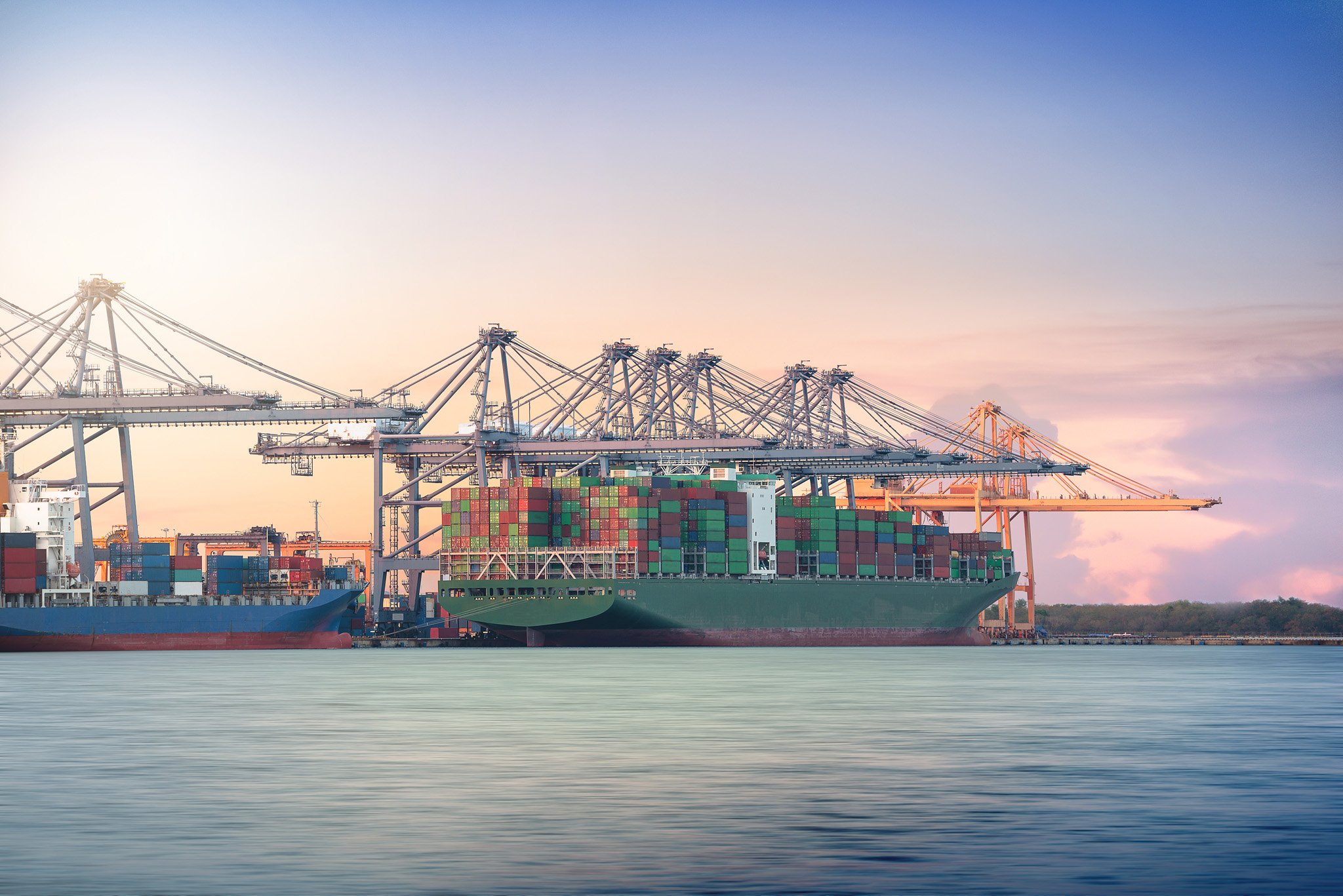
Shipping
Electrification of shipping with eFuel
While coastal shipping can be electrified using battery power, the bulk of global shipping – with its long transport distances – requires liquid fuel.
Phasing out fossil fuels and replacing them with carbon-neutral fuels is a critical pathway to help the maritime industry achieve a key piece of the puzzle in reaching a fossil-independent maritime vehicle fleet in 2050.
Electrofuel can be used with existing infrastructure and be harnessed with minimal CAPEX and engine modification compared to ammonia and hydrogen, thereby providing an immediate method to transition to green fuel.
In contrast to biofuels, which are constrained by the limited availability of raw materials needed in their production processes, electrofuel has the capacity to achieve the scalability needed to power global shipping.
Several shipping companies have successfully proven that methanol is a viable fuel and eMethanol is increasingly viewed as an accessible solution to enable emission reductions and meet sustainability targets.
Reaching a negative GHG footprint with Liquid Wind
There are several alternative green fuels available – however non have the same decarbonizing impact as eFuels from the facilities developped by Liquid Wind.
When measured on a Well-to-Wake basis, eFuel from Liquid Wind plants are attaining a Greenhouse Gas (GHG) negative footprint (specifically -68.5 to -67.9-gCO2eq/MJ) at the delivery point. Once combusted this GHG footprint sits at near carbon neutrality (specifically 2gCO2eq/MJ).
How? By capturing fully renewable energy from onshore wind and recycling biogenic CO2. Meaning they meet the environmental standards from the start.
Advantages of eMethanol as a Marine fuel
-
eMethanol offers significant reductions in greenhouse gas emissions (GHG) compared to traditional fossil fuels.
When measured on a Well-to-Wake basis, eFuel produced in a Liquid Wind facility achieves an eMethanol GHG footprint of approximately -68.5 to -67.9 gCO2eq/MJ at the delivery point, which makes it carbon negative before combustion. This is accomplished by fully utilizing renewable energy from onshore wind and recycling biogenic CO2, meeting environmental standards from the outset as a result.
eFuel from facilities developped by Liquid Wind comply with the EU Maritime Fit for 55 EU legislation. This ensures that the fuel aligns with stringent regulatory requirements aimed at reducing GHG emissions and promotion the use of sustainable energy within the maritime industry and beyond.
-
eMethanol, derived from green hydrogen, is liquid at ambient temperature and pressure. This makes it easy to store, transport and distribute by ship, pipeline, truck, and rail – using the existing, well-established, global transportation and storage infrastructure.
-
eMethanol can leverage existing infrastructure for storage, transport, and distribution. This minimizes the need for extensive infrastructure upgrades or investments, streamlining the transition process for marine operators.
-
Methanol has been proven as a fuel in ordinary internal combustion engines and blends easily with traditional fuels. This means that, unlike hydrogen, it can relatively easily replace heavy fuel oil in sectors like shipping, requiring only moderate modifications to the current fleet of vessels and the existing fuel distribution infrastructure.
-
Methanol has a higher energy density compared to other alternative fuels like hydrogen, making it a more efficient energy carrier for marine applications. This allows vessels to maintain performance levels while reducing fuel consumption and operational costs.
-
eMethanol is a stable and safe fuel option for marine operations. Its physical properties make it suitable for storage and handling, with well-established safety protocols that mirror those of traditional fuels like gasoline and diesel.
-
Safety protocols for Methanol (and eMethanol) transport and storage mirror those of other flammable liquids such as gasoline, jet fuel, and ethanol. When stored correctly, methanol remains stable and its shelf life is indefinite. eMethanol has a long storage life when stored correctly, ensuring reliability and availability for marine operators. This stability contributes to the resilience of marine operations, particularly for long-distance voyages.
-
Methanol features an outstanding hydrogen to carbon ratio and a higher volumetric energy density than both compressed and liquid hydrogen, making it a truly exceptional hydrogen carrier. (Remarkably, a liter of methanol holds more elemental hydrogen than a liter of liquid hydrogen!).
-
eMethanol is a versatile fuel that can be used in a wide range of marine vessels, from cargo ships to cruisers. Its compatibility with existing internal combustion engines makes it an accessible and practical solution for transitioning away from fossil fuels.
Read more about eMethanol for the shipping industry
Proud members of the Getting to Zero Coalition
At Liquid Wind, we hold a deep belief in the power of collaboration to foster positive change. We highly value the contributions of various organizations, NGOs, and industry leaders working tirelessly towards a more sustainable future powered by fossil-free fuels. In line with our commitment to collaborative efforts, we are proud to be part of the Getting To Zero Coalition. This global initiative unites industry leaders, policymakers, and innovators, aiming to accelerate the transition of the maritime industry towards decarbonization.
Innovative solutions: By being part of the Getting to Zero Coalition, we gain access to a collaborative network of experts and cutting-edge solutions, which accelerates the development of sustainable marine fuels, bringing us closer to a future where our oceans are navigated with minimal environmental impact.
Collective impact: Sustainability is a shared responsibility. Joining forces with the Getting to Zero Coalition demonstrates a commitment to a cleaner, greener maritime sector.
Global leadership: The Getting to Zero Coalition operates on a global scale, amplifying Liquid Wind's influence in the international effort to reduce carbon emissions from maritime activities.
Looking to accelerate your carbon neutral transition?
We would love to discuss your needs and how we can support you to meet your sustainability goals.










